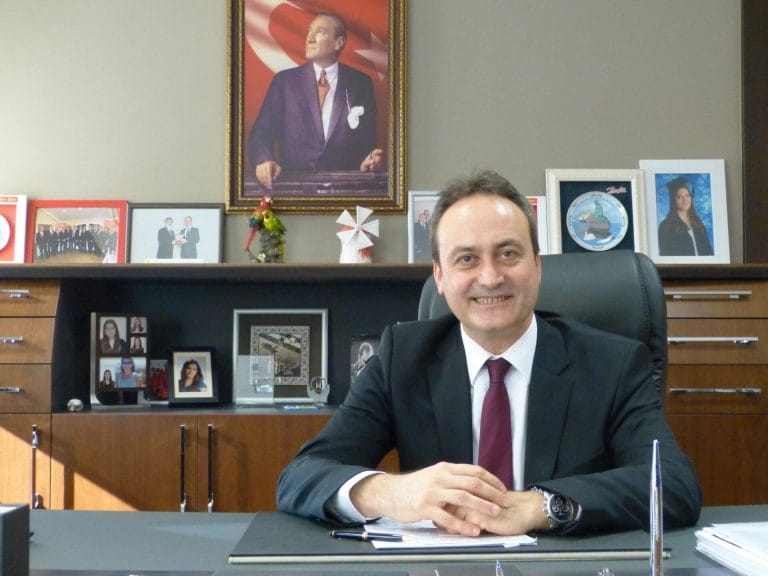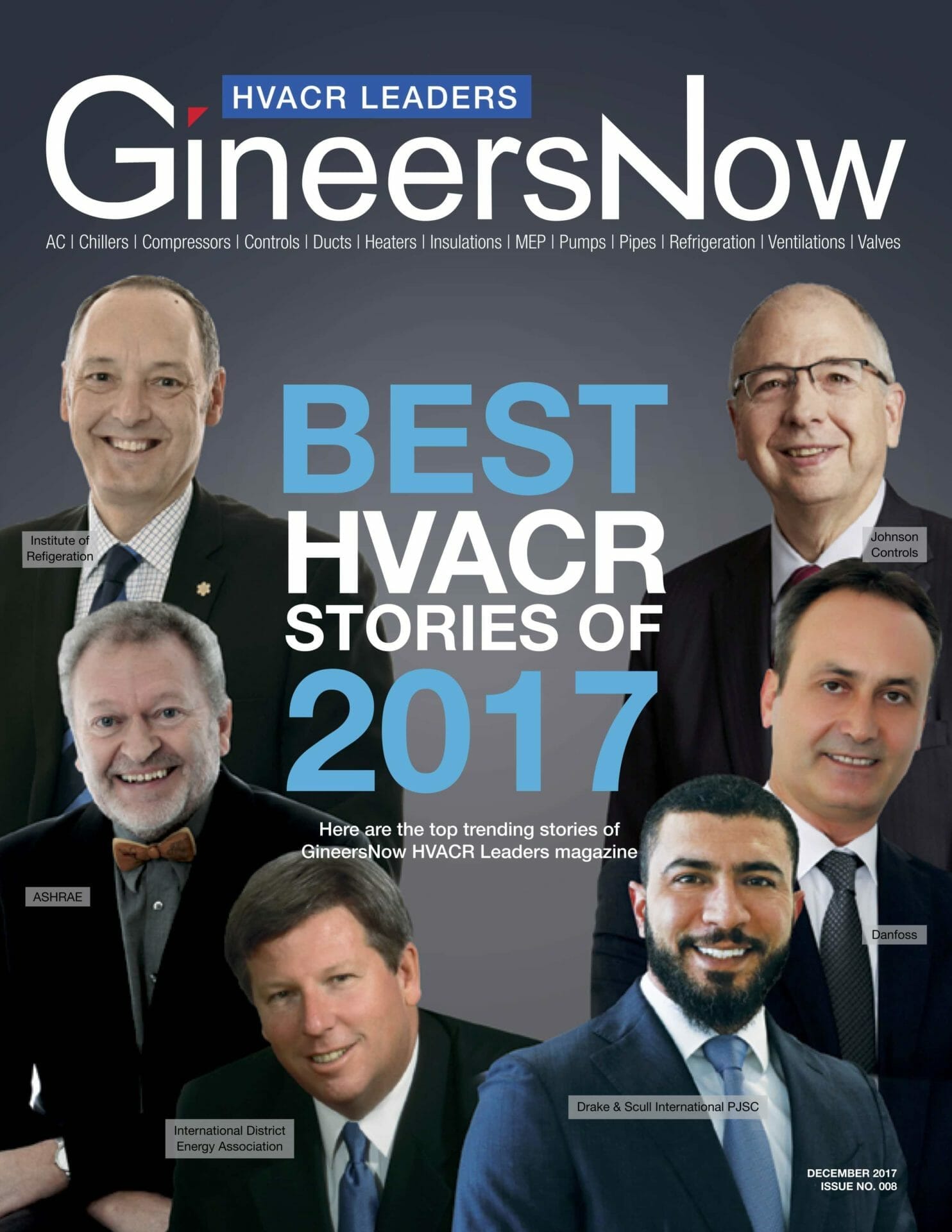Starting off as a family business in the northern part of the island of Als, Denmark, Danfoss has cemented its position as one of the global leaders in providing innovative engineering solutions in the heating, ventilation, air conditioning and refrigeration industries. Today, the pioneering brand employs more than 25,000 people and serves customers in more than 100 countries.
Since it was founded in 1933, Danfoss has been engineering technologies that enable the world of tomorrow to do more with less. The very first Danfoss product launched was the expansion valve, which Danfoss founder Mads Clausen developed in the early 1930s. Now, the fifth generation of the valve is sold around the globe – helping to keep food fresh and buildings cool in various refrigeration and air-conditioning systems – and we are now one of the world’s leading producers of expansion valves.
With over 80 years of innovation, we have a wide range of products that are used to keep families comfortable, keep food fresh and save energy whilst supporting to build the world. We play an active role in some of the main growth industries in a world that is rapidly changing: infrastructure, food, energy and climate are the focus of our business.
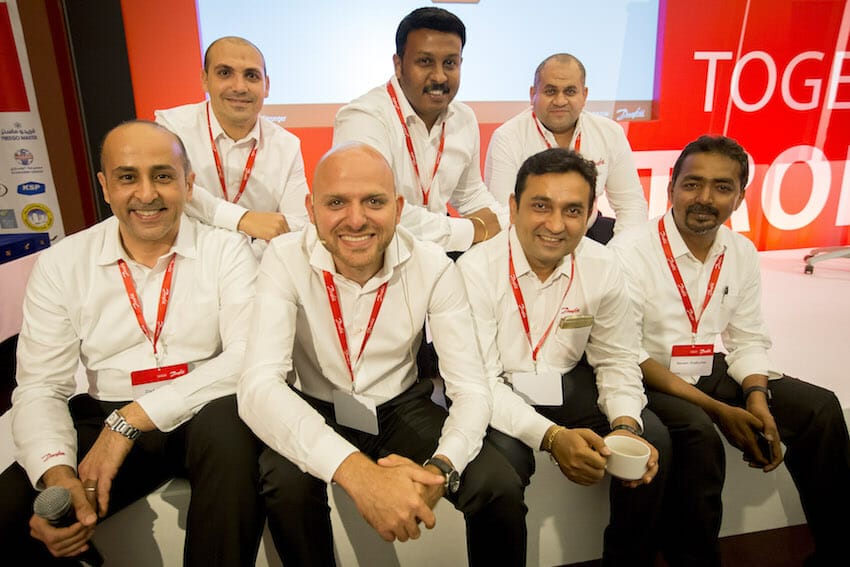
In 2015, we launched our ambitious “Climate Strategy 2030”, which requires us to reduce our own energy intensity and CO2 intensity by 50% before 2030. To achieve these goals, we have set in motion a number of measures to further reduce our energy consumption and drive greener technology investments in buildings and processes. We have chosen not to buy our way to carbon neutrality, but rather to put our money where our mouth is with our own solutions. We take a very practical approach, showing that we can reach ambitious energy and climate targets with existing technology.
As the global population grows by nearly a quarter of a million people per day, the role of engineers in crafting the world of tomorrow becomes increasingly important. At this growth rate, and with increased standards of living, we will see the demand for energy expand up to 37% globally by 2040. Along with a growing demand for energy, the demand for public, private and commercial buildings will follow. Estimates predict that 60% of the area, which will be urban by 2030, have yet to be built.
Effective infrastructure is the key to transforming low and middle-income countries, and engineering innovative and effective solutions now will surely make a difference for the cities of the future. This responsibility lies with engineers from the very first stages of urban planning.
At Danfoss, we help construct the roads and buildings and optimize the energy and water supplies, as well as plants and buildings. This is done through manufacturing products that help control, steer and propel construction and road building machines in the most efficient way – for example, our power control software saves on average between 10% and 25% of fuel by adjusting the diesel engine speed.
By combining generation of heat and power, 90% efficiency can be achieved due to surplus heat from power plants being retrieved into a district heating network instead of being wasted. We have expertise and systems that help make it happen. Only 9% of global power generation comes from combined heat and power.
Products for all application areas, from groundwater pumps to water supply and wastewater handling are also manufactured by Danfoss; for example, our aqua variable speed drives help reduce leakage and improve water quality while cutting the investment needs and bringing energy savings ranging from 20 to 50%.
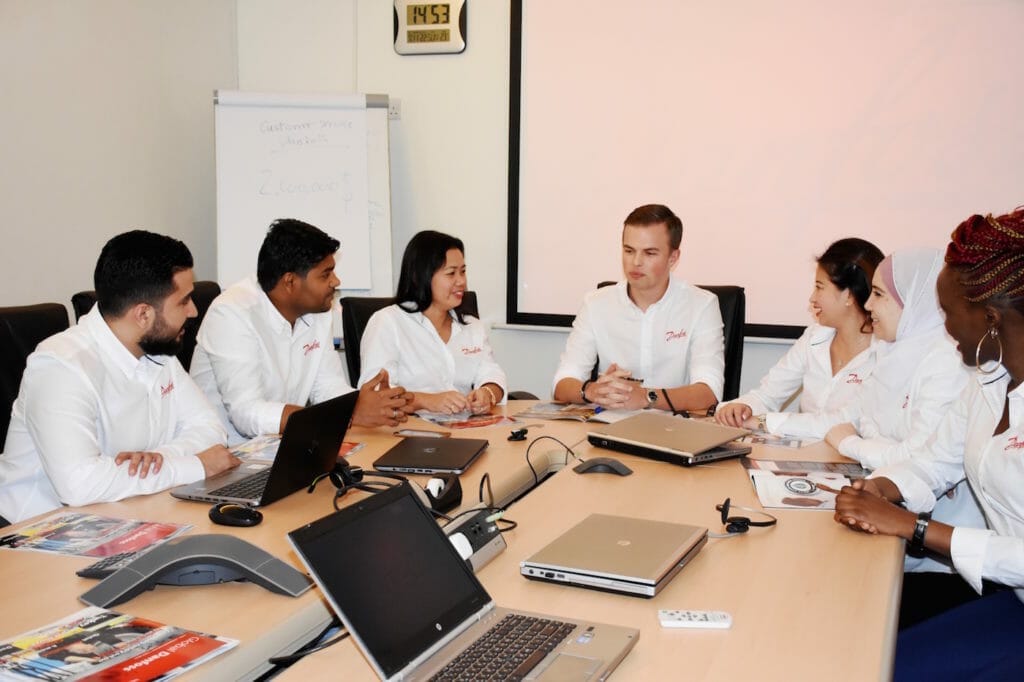
The aim is to ensure cleaner air and increased comfort for people, as well as higher efficiency and productivity – moving the growing cities in a green direction and raising the standard of living.
Whilst there are products in the market that contribute towards reducing energy consumption and wastage, it is our duty as engineers to continuously push the boundaries of innovation and challenge ourselves to come up with new and effective solutions utilizing the latest technologies.
If we are to meet the growing demand for energy, while making sure global warming does not exceed the 2°C scenario, as set out by the Paris Agreement, engineers need to rethink the way buildings are designed, making them smarter. Connectivity needs to be utilized to maximize efficiency and ensure that all resources are used to their full potential.
For example, today, the Internet of Things (IoT), holds enormous opportunities. The current network of IoT consists of 5bn devices, however, this is expected to grow to 26bn by 2020; exceeding the number of humans at a ratio of 4:1. The potential of what can be achieved with all these connected devices is extraordinary. As most of the growth in population and urbanization is happening in countries such as China, India and Nigeria, undoubtedly, the IoT will be an important factor.
It is through a change in mindset, enabled by the Internet of Things, that buildings become smart. Once this change in behavior is adopted, buildings can become smart; if we get the buildings right, then we get the energy system right.
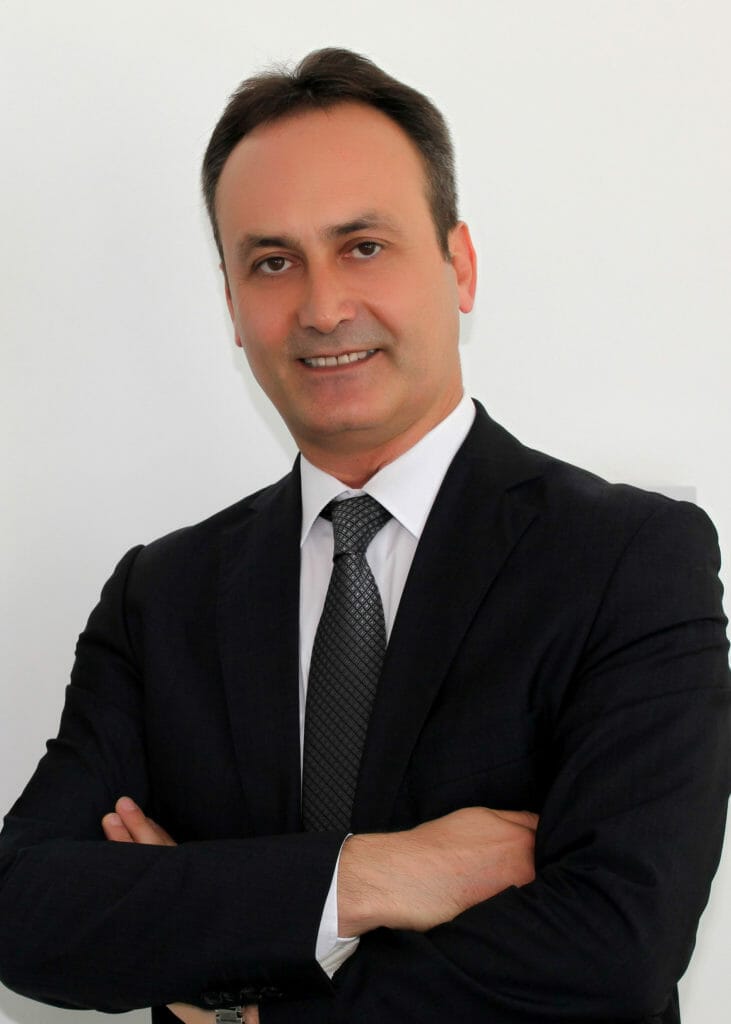
Levent Taşkın, Danfoss President of Turkey, Middle East and Africa Region, is responsible in 69 countries for Heating, Cooling, Drives and Power Solutions segment of the business.
With a focus and passion on energy efficiency, Levent takes an active role in promoting sustainable global development, where social responsibility, the environment and climate considerations go hand-in-hand with sound business development. Infrastructure, food, energy and climate are the growth themes and focus of the Danfoss business.
Levent has more than 25 years of experience in General Management and has held several senior management positions during his career in the HVAC sector in Turkey. Prior to joining Danfoss, he was the General Manager of Vaillant.
Levent has highly developed team management, project management and communication skills, and his specialty lies in reorganizing existing company structures to create new business models that will increase efficiency and profitability. He is a board member of several associations related to HVAC and energy efficiency.
Levent holds a Masters degree in Industrial Engineering and a Bachelors degree in Mechanical Engineering from Yildiz Technical University, Istanbul.


